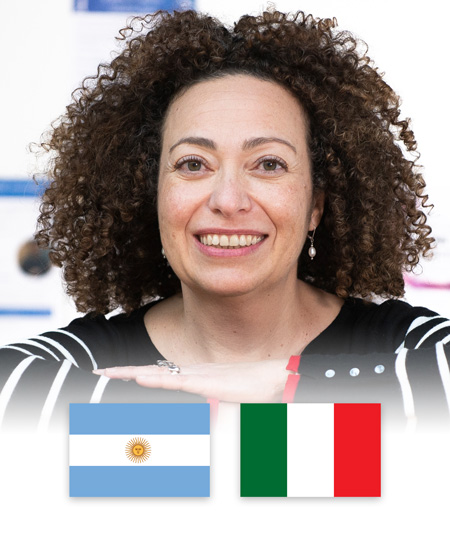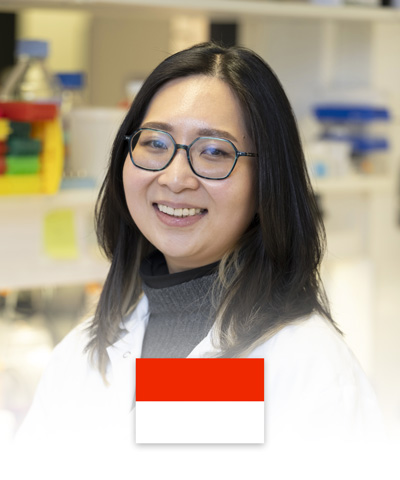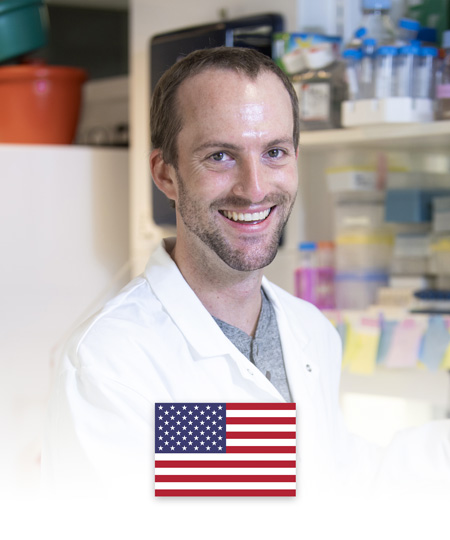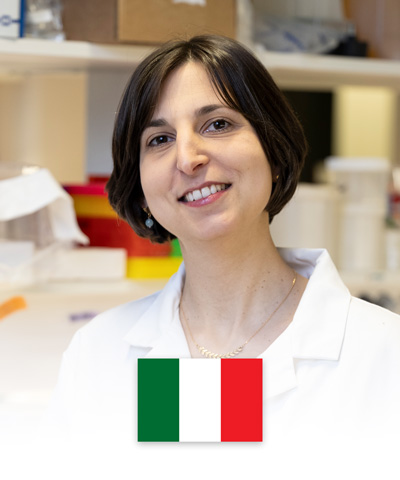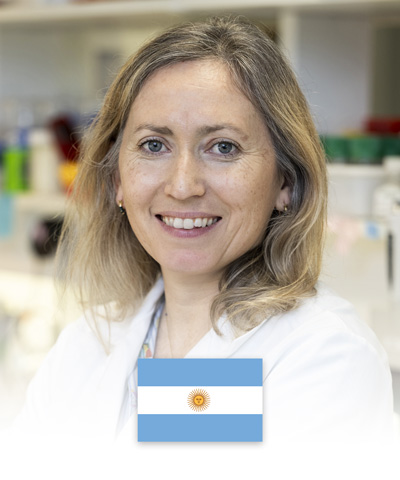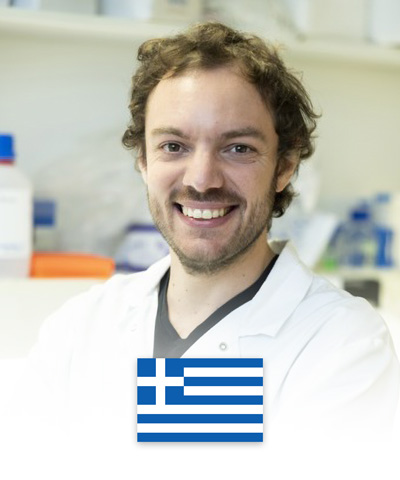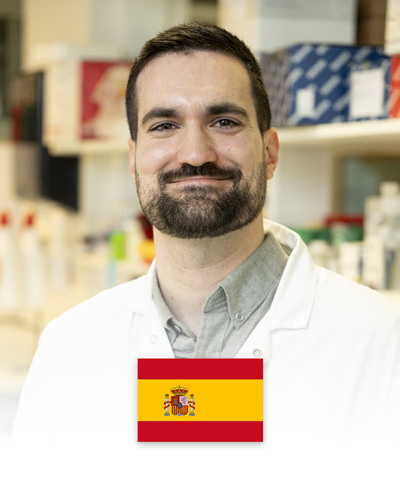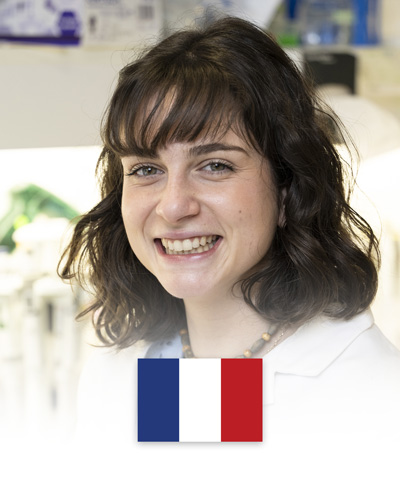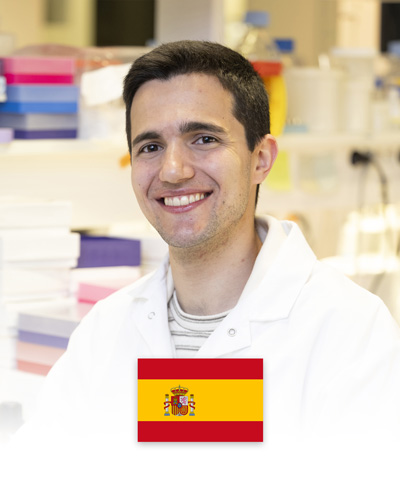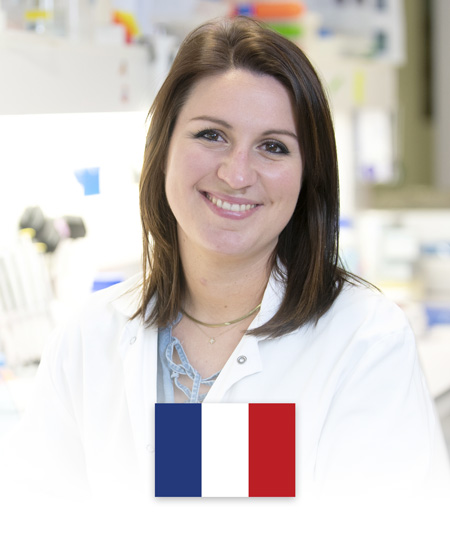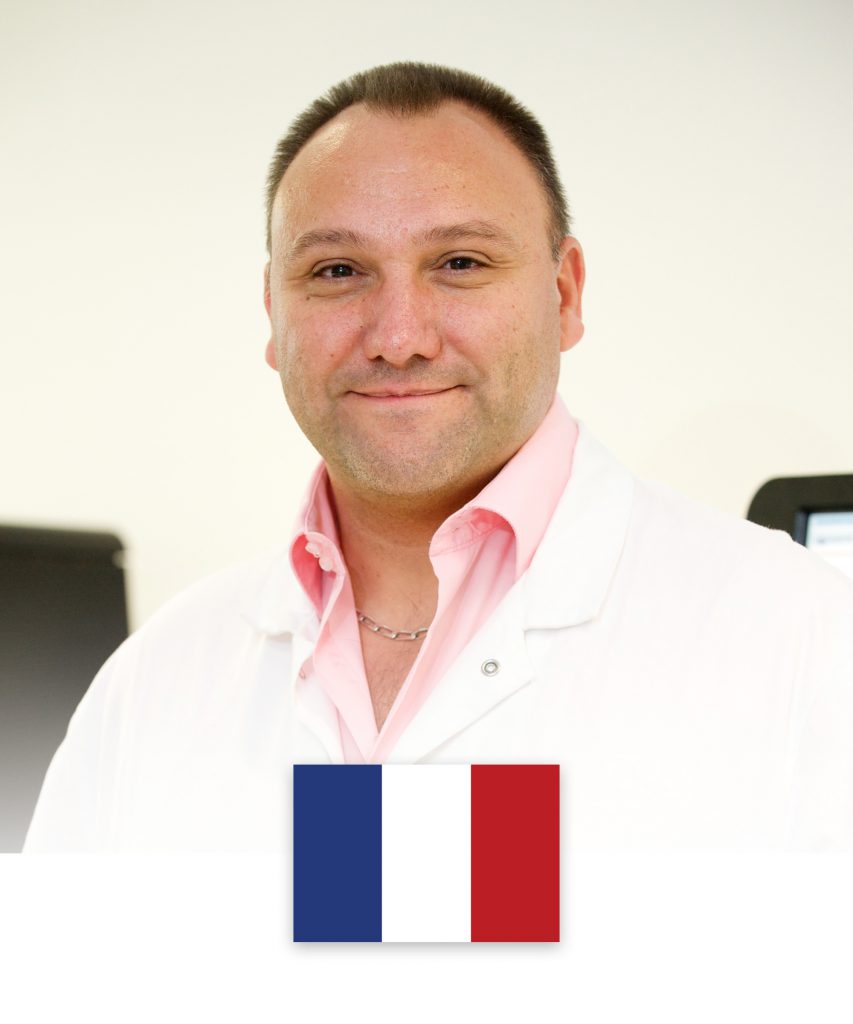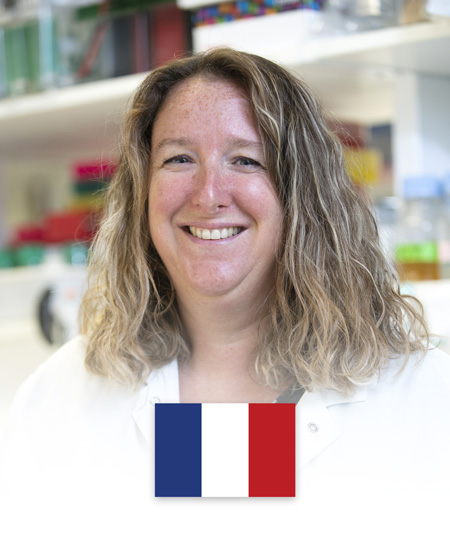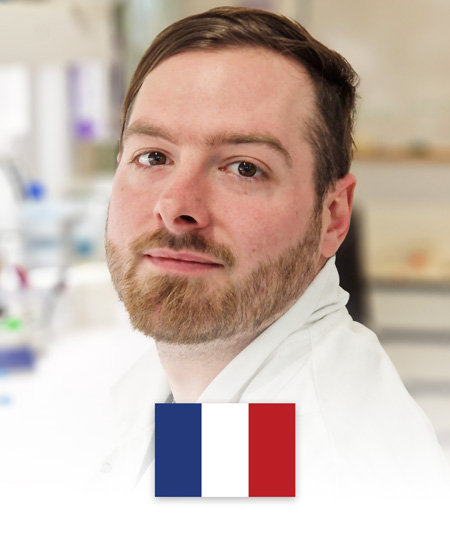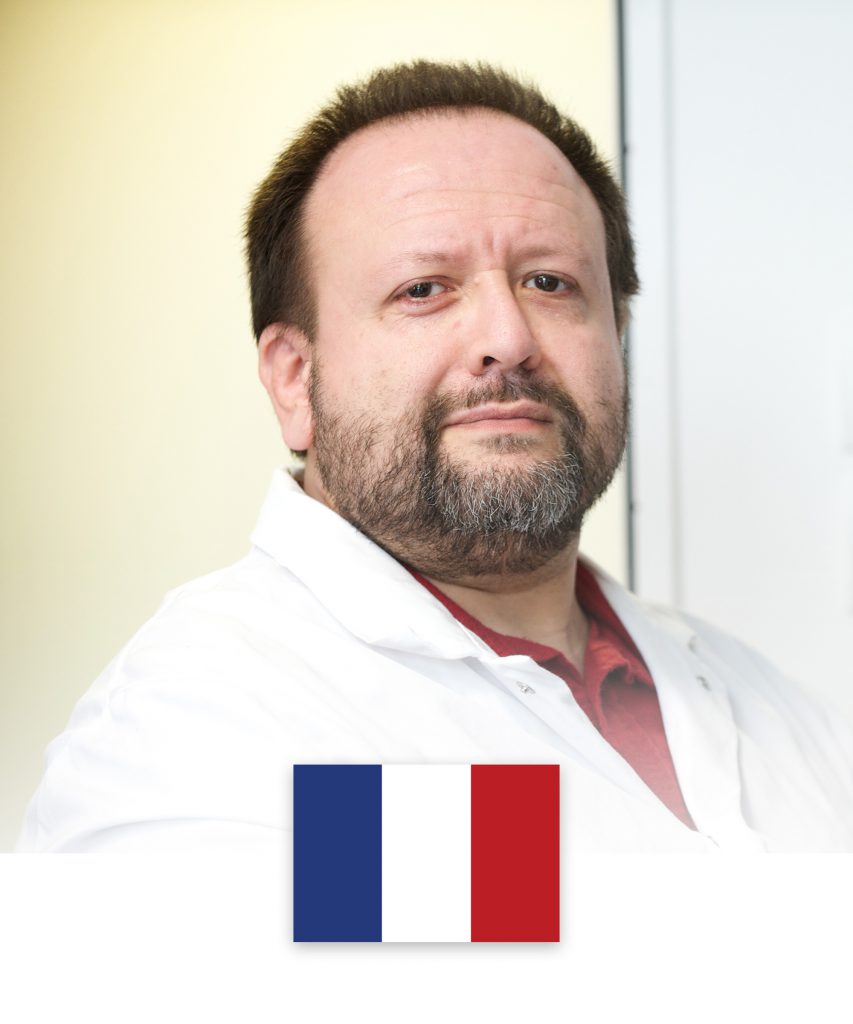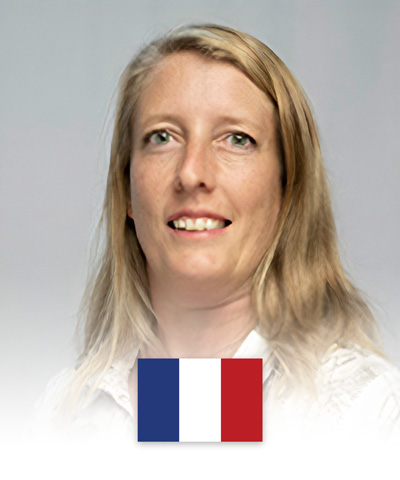Each person in our lab makes a significant contribution to our research. We employ a proactive approach to science by constantly asking the question, “What if…?” Meet our current team to learn more about their individual “What if…” focus areas.

Our Team
Current Team
Principal Investigator
Maria Carla Saleh, Ph.D.
Principal Investigator, Viruses and RNAi Unit, Department of Virology, Institut Pasteur Paris
“What if we redefined innate immunity by better understanding the immune system of infected insects? What if we could selectively control infected insects from transmitting diseases to humans?”
Post Docs
Cassandra Koh
PostDoctoral Fellow
“What if we could replicate how an insect virus becomes part of the inherited virome of a mosquito? What if insect-specific viruses can be used to prevent the transmission of emerging human viral pathogens?”
Jared Nigg
PostDoctoral Fellow
“What if we could understand why oral infections with some viruses are cleared in insects, while injection with the same viruses causes lethal infections? What if maintenance of epithelial homeostasis plays an antiviral role in insects? What if molecular and physiological events occurring during oral infection prime immune memory and define the outcome of infection?”
Ottavia Romoli
PostDoctoral Fellow
“What if we could use bacteria to stimulate mosquito RNA interference immunity against viruses? What if we could engineer the mosquito microbiota to prevent mosquitoes to transmit arboviruses?”
Eugenia Soledad Bardossy
PostDoctoral Fellow
“What if we could decipher the mechanism by which insects internalize dsRNA from the environment? What if this mechanism is conserved among kingdoms and could be leveraged for insect pest control?”
Alexandros Belavilas Trovas
PostDoctoral Fellow
“What if we could disrupt the mosquitoes’ capacity to host viruses by manipulating their retrotransposons? What if we could genetically engineer retrotransposons to render mosquitoes incapable of transmitting diseases?”
Ruben Gonzalez Miguelez
PostDoctoral Fellow
“What if we could understand how the host microbiome impacts viral infections? What if the host microbiome influences virus evolution? What if virus-induced aging could be mitigated?”
Students
Ines Partouche
PhD Student
“What if interactions between insect-specific viruses and arboviruses in mosquitoes can inhibit the transmission of arboviral diseases?”
Mauro Castello Sanjuan
PhD Student
“What if the interactions between viruses and the insect innate immune system vary during development? What if immune responses triggered at a young age provide antiviral immunity later in life?”
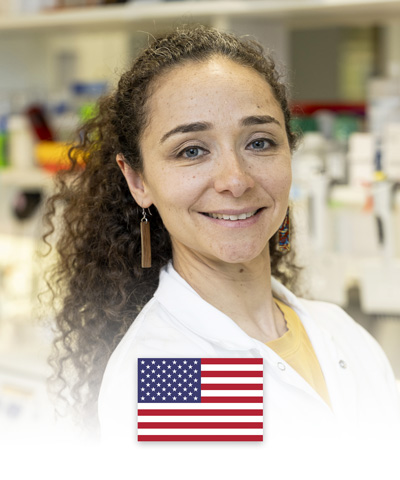
Ariana Ghez Farrell
Student
“What if we could modify a wide-spread, insect-specific virus to vaccinate mosquitos against viruses transmitted to humans like Zika, Dengue and Chikungunya?”
Engineers and Technicians
Annabelle Henrion-Lacritick
Engineer
“What if I could help the team to manipulate the world’s number one serial killer, a.k.a. mosquitoes? What if I could help the team to manipulate arboviruses that are dangerous to humans?”
Hervé Blanc
Technician
“What if my deep sequencing libraries could be created faster, better and more efficiently in order to give the scientists the data they need to make even more discoveries, conclusions and ‘Aha!’ moments?”
Valerie Dorey
Engineer and Lab Manager
“What if we could further streamline our experimental protocols to make the lab operate even more efficiently? What if each lab member could do more with their individual research because I was able to provide additional experimental support?”
Aurélien Gibaud
Technician
“What if I could design and improve protocols to study insect specific viruses to understand their interactions with arboviruses?”
Bioinformatics
Administrative Staff
Lionel Frangeul
Bioinformatician
“What if the informatics structure was so strong that our deep sequencing analysis could provide each scientist with solid biological and mathematical data to clarify results and propose new biological models?”
Marie Philippe
Administrative Assistant
“What if all administrative distractions like equipment needs, travel arrangements, welcoming of PhD Students and Post-docs, scheduling, planning and budgeting, were taken care of so that the lab members could focus all their energy just on the research and their experiments?”
Honorary Member
Lab Alumni
Visiting Sabbaticals
Susan Carpenter (United States), Iowa State University
Benjamin Kopek (United States), Hope College
Post-docs
Alessandro Torri (Italy)
Vanesa Mongelli (Argentina)
Sabrina Johanna Fletcher (Argentina), now Università degli Studi di Torino, Italy
Bryan Arias (USA), now Codex DNA, San Diego, California, USA
Bertsy Goic (Chili), now Scientific Illustrator and Founder of “DrawInScience”
Fernando Merwais (Argentina), now Postdoc Instituto de Biologia Molecular y Celular de Plantas, Valencia, Spain
Virginia de Oliveira (Brazil), now Assistant Professor, Universidad Federal do Tocantins, Brazil
Juan Mondotte (Argentina), now Managing Editor Springer Nature Group and Partner and Chief image analysis scientist
Yasutsugu Suzuki (Japan), now Assistant Professor, Ehime University, Japan
Lorena Tomé-Poderti (Uruguay), now Assistant Professor, Universidad de la República, Uruguay
Nicolas Vodovar (France), now Research Associate, Lariboisière Hospital – INSERM UMR-S 942, Paris, France
Retired
Brigitte Bidault (France)
Ph.D Students
Margot Karlikow (France), now PostDoc at University of Toronto
Pascal Miesen (Germany), now PostDoc at Radboud University Medical Center, Nijmegen, Netherlands
Benjamin Obadia (France), now PostDoc, University of California, Berkeley, California, USA
Marine Petit (France), now PostDoc at University of California, Davis, USA
Enzo Poirier (France), now PostDoc at Francis Crick Institute, London, UK
M.Sc and Summer Students
Chloé Baron (France)
Christian Bolton (USA)
Irene Chacon (Uruguay)
Sarah Leach (USA)
Petro Leka (Albania)
Tiago Martins (Portugal)
Gaspard Mouton (France)
Adrien Paul-Dubois-Taine (France)
Charlotte Romanet (France)
Nidia Schemmel Jofre (Chili)
Estelle Soueidi (France)
Remi Woussen (France)
Last updated: March 2024



